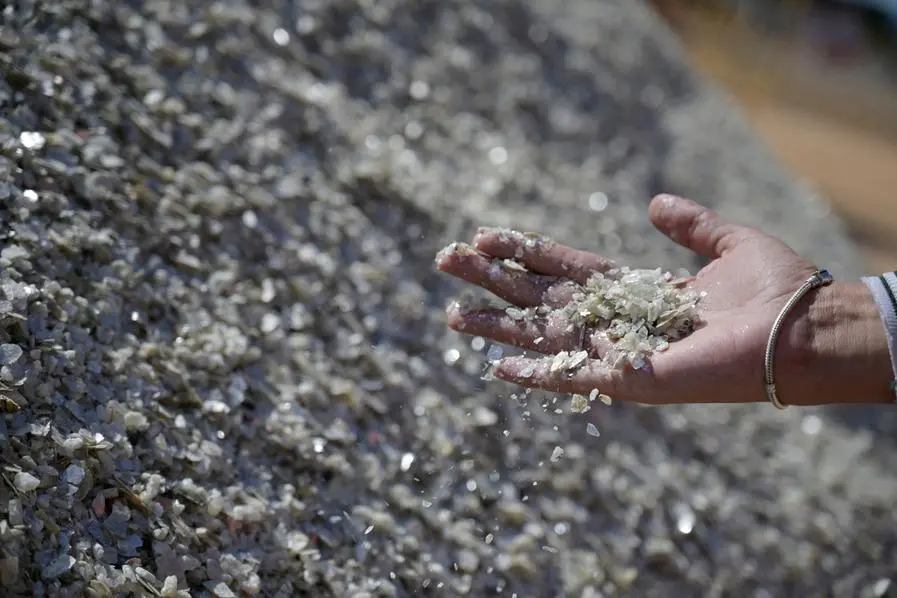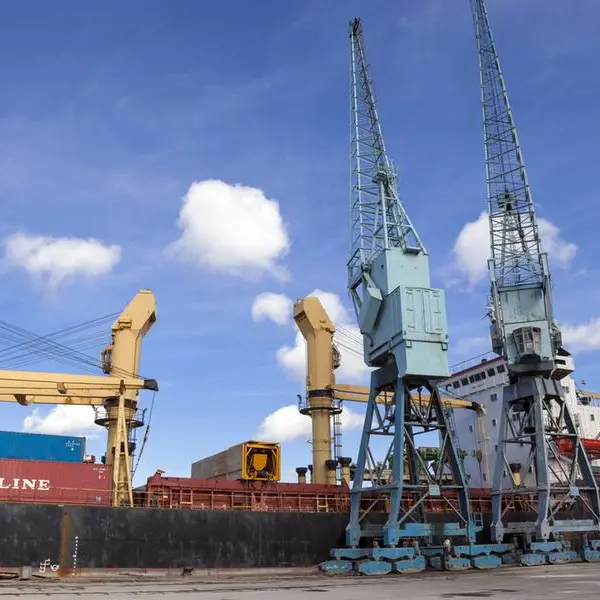PHOTO
Nigeria has the potential to become a key player in the global battery metals market by developing its lithium resources with the attendant benefit of accelerating economic growth and development.
NIGERIA’S mineral exploration lags behind in lithium exploration despite the potential to create enormous opportunities to grow the economy.
For years, Africa’s largest economy relied mainly on oil but is now placing premium on its mining industry, and wants to bank on the booming global lithium market.
To actualise this goal, Nigeria is tightening rules on mining lithium minerals across the country following the rush for it by foreign mining companies.
The government has vowed that no company would be allowed to mine and export raw lithium unless they set up processing and refining plants in Nigeria.
The Minister of Solid Materials Development, Dele Alake, said the government would “do everything possible to discourage the carting away of our solid minerals without value addition.”
Lithium, the much-coveted mineral, is used to produce rechargeable batteries and electric vehicles. With discoveries of large lithium deposits in the country, Nigeria can profit from the billion-dollar global lithium market.
Already, Thor Explorations has 600km2 of tenure in Nigeria for lithium projects in Oyo, Kwara and Ekiti States and drilling reports reveal positive signs from the company’s lithium concessions. Lithium is also currently mined in Nassarawa, Kogi and Cross River States.
“I want to emphasise the fact that the era of exporting raw solid minerals from Nigeria is over. Any company wishing to come and invest in the solid minerals industrial sector in Nigeria henceforth must add local value.
“I am glad to mention that such an initiative is already on stream as some companies have already commenced operations in Nigeria,” Mr Alake said.
Ganfeng Lithium Industry Ltd., a Chinese company, is building a lithium processing plant in Nasarawa state. The plant would process about 18,000 tonnes of lithium ore per day to manufacture batteries for electric vehicles and the government said it is an example of the desired type of investment.
Also, a UK-based Jupiter Lithium Ltd and US-based ReElement Technologies Corporation have commenced a project for lithium exploitation across 442 square kilometers of lithium-rich terrain in northern Nigeria.
Under the project, known as the Jupiter Critical Minerals Project, the two international companies and their Nigerian partners are to commercialise major lithium deposits in Kaduna State.
The Chairman of Jupiter Lithium Ltd, Mr Stephen Davis, said Jupiter Critical Minerals Project, which is being undertaken with the support of the Federal Government, is set to become Nigeria’s first large-scale lithium mine.
The mining industry, which at present is largely underdeveloped, contributes less than one percent to the country’s gross domestic product (GDP). The government wants to diversify the country’s economy, shifting away from its massive reliance on oil.
Maximising the revenue from lithium is not the only focus for the authorities as they also want to ensure that the mineral is not mined to the detriment of the environment. Foreign nationals like the Chinese have been warned to avoid engaging in the illegal mining of lithium.
In a joint statement, the two companies explain further: “The partnership aims to transform Nigeria into a regional hub for lithium mining and downstream battery and electric vehicle (EV) manufacturing; Jupiter Lithium plans to expand its operations, currently at contract mining, to include a spodumene concentrator facility that will produce 55,000 tons of six percent lithium spodumene concentrate annually by the first quarter of 2025.
“Production is expected to ramp up to 167,000 tonnes within two years and ReElement Technologies will build a lithium and critical mineral refinery to convert spodumene concentrate into high-purity, battery-grade lithium carbonate. The Jupiter Critical Minerals Project is being developed in phases with government support, ensuring economic feasibility and long-term risk minimisation; beyond economic benefits, the project will also enhance local infrastructure, providing access to potable water, electrification and education scholarships in host communities.”
Indeed, Nigeria could become a top lithium supplier. As global demand for battery metals continues to grow, the upcoming Critical Minerals Africa summit will showcase Africa’s latest lithium development projects in Zimbabwe, Mozambique, Rwanda and more. It presents ample opportunity for the country to showcase its abundant mineral potential, especially in lithium.
Earlier this year, market research firm, Benchmark Mineral Intelligence, forecast Africa’s lithium production to triple year-on-year in 2024, increasing the continent’s share of global output from four percent to over 10 percent. The rise can be attributed to a surge in financing from China, which is responsible for 90 percent of Africa’s planned lithium supply through 2030.
Africa’s position within the global lithium market will be a key talking point of this year’s Critical Minerals Africa summit taking place in Cape Town in November, where a dedicated Minerals Showcase: Lithium session will explore the continent’s future role in the energy transition as a major producer of the critical mineral, according to APO Group.
Lithium is an essential element for the energy transition, as it is used in a variety of applications including batteries for electric vehicles and energy storage systems.
Zimbabwe is home to the world’s largest known deposits of lithium and is estimated to have the highest number of lithium projects under exploration in Africa.
In April 2024, Chinese mining company Rwizi Rukuru commissioned a 300-tonne-per-day lithium concentrator in Mutoko – the third lithium processing plant located in the country’s Mashonaland East province. With investment flowing across the country’s mining value chain, Zimbabwe is estimated to meet upwards of 20 percent of global demand if its full potential is unlocked.
CMA is the largest gathering of critical mineral stakeholders in Africa. Taking place from November 6 to 7 in Cape Town, the event positions Africa as the primary investment destination for critical minerals.
This year’s edition takes place under the theme, ‘Innovate, Enact, Invest in African Critical Minerals to Sustain Global Growth,’ connecting African mining projects and regulators with global investors and stakeholders to the untapped full potential of the continent’s raw materials.
Meanwhile, the newly-formed joint venture (JV) Deccan Gold Mozambique LDA announced in May 2024 that it will conduct lithium exploration activities in Mozambique’s Alto Ligonha Pegmatite Belt. The company will establish a 100-tonne-per-day lithium processing facility, leveraging a $10-million capital injection from JV partner Deccan over the next three years.
Lithium produced from the Mozambican concessions will be exported to India to meet the growing demand for critical minerals crucial for the energy transition. Also in the East African region, mining exploration company, Aterian recently announced plans to start drilling at the HCK lithium project in southern Rwanda by September 2024. Positive results indicate the presence of lithium-bearing minerals at the mining project, and the company is now advancing with preparatory work and the drill planning stage.
In Mali, Chinese lithium producer Ganfeng Lithium finalized an agreement worth more than $342 million in May 2024 to acquire a 40 percent stake in the Mali Lithium Project from Australian mining firm Leo Lithium. The deal will enable Ganfeng Lithium to buy the entire output from phase one of the 506,000-tonne-per-year project. In the same month, exploration and development company Atlantic Lithium disclosed promising drilling outcomes at its Ewoyaa project in Ghana, highlighting the growth potential of existing lithium resources, which currently stand at 35.3 million tonnes.
In addition to Africa’s raw lithium prospects, several countries are exploring opportunities for local value addition.
Earlier this month, Zimbabwean mining company Kivumba Mining House signed a $310-million deal to construct a 3 million-ton-per-year lithium processing plant at the Sandawana mine in Mberengwa. The facility is expected to be operational within 18 months and will initially produce 600,000 tons of lithium concentrate annually, falling under the country’s efforts to ban the export of unprocessed raw lithium.
A similar move by Tanzania was announced last year, as the country aims to maximise value addition across its critical mineral industry through the development of downstream infrastructure. The government has outlined an export licence process, stating that mining companies are required to establish in-country refining facilities alongside their respective operations.
Mr Alake said Nigeria’s mining industry is being modernised and that the government is investing more than $19.6 million over seven years to generate data on the mining sector through the National Integrated Mineral Exploration Project (NIMEP).
“The preliminary reports from this project have unraveled massive discoveries which have put Nigeria on the world map of lithium-rich countries,” Alake told the gathering at the Nigeria Mining Week event.
According to a 2021 study conducted by the Nigerian Geological Survey Agency, the lithium content of spodumene and lepidolite minerals contained in the pegmatite is high grade, ranging up to eight percent lithium oxide. This makes the Nigerian Lithium Belt an attractive location for mining companies like Continental Critical Minerals, as it offers a rich source of high-quality lithium and other valuable minerals.
Lithium is critical in modern technology, including batteries for electric vehicles (EVs) and renewable energy storage solutions. As the demand for lithium continues to grow, the Nigerian Lithium Belt represents a significant opportunity to contribute to economic growth.
In addition to Africa’s raw lithium prospects, several countries are exploring opportunities for local value addition.
Earlier this month, Zimbabwean mining company Kivumba Mining House signed a $310-million deal to construct a 3 million-ton-per-year lithium processing plant at the Sandawana mine in Mberengwa. The facility is expected to be operational within 18 months and will initially produce 600,000 tons of lithium concentrate annually, falling under the country’s efforts to ban the export of unprocessed raw lithium.
A similar move by Tanzania was announced last year, as the country aims to maximise value addition across its critical mineral industry through the development of downstream infrastructure. The government has outlined an export licence process, stating that mining companies are required to establish in-country refining facilities alongside their respective operations.
Mr Alake said Nigeria’s mining industry is being modernised and that the government is investing more than $19.6 million over seven years to generate data on the mining sector through the National Integrated Mineral Exploration Project (NIMEP).
“The preliminary reports from this project have unraveled massive discoveries which have put Nigeria on the world map of lithium-rich countries,” Alake told the gathering at the Nigeria Mining Week event.
According to a 2021 study conducted by the Nigerian Geological Survey Agency, the lithium content of spodumene and lepidolite minerals contained in the pegmatite is high grade, ranging up to eight percent lithium oxide. This makes the Nigerian Lithium Belt an attractive location for mining companies like Continental Critical Minerals, as it offers a rich source of high-quality lithium and other valuable minerals.
Lithium is critical in modern technology, including batteries for electric vehicles (EVs) and renewable energy storage solutions. As the demand for lithium continues to grow, the Nigerian Lithium Belt represents a significant opportunity to contribute to economic growth.
Copyright © 2022 Nigerian Tribune Provided by SyndiGate Media Inc. (Syndigate.info).





















